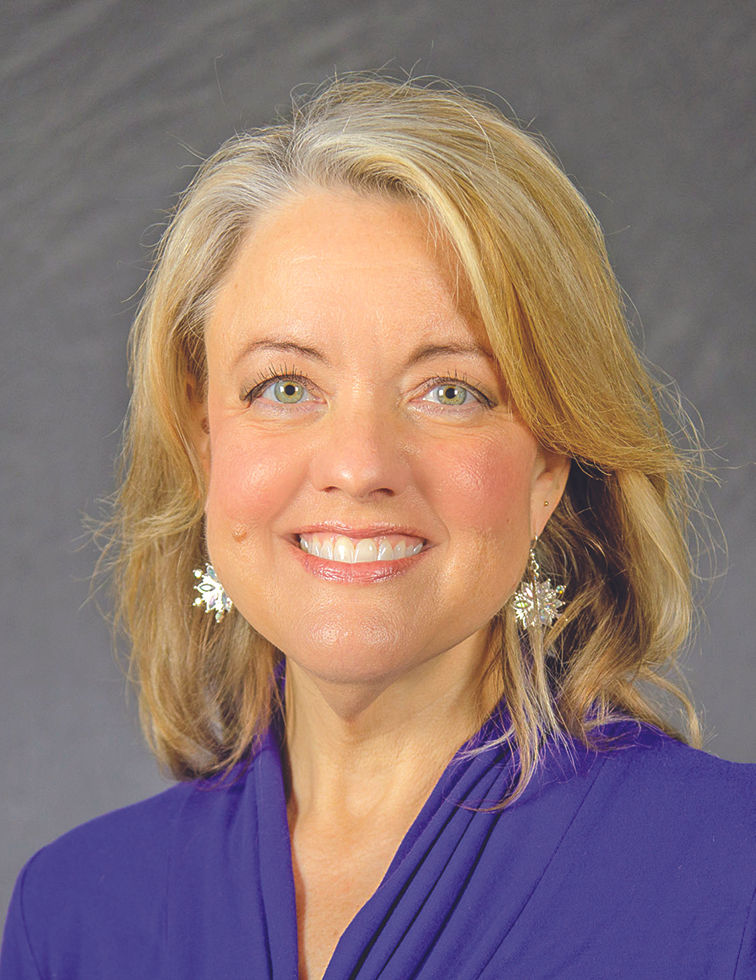Growing Greenup - Sun Safety
- Posted By: Sasha Bush

- Jun 17, 2025
- 4 min read
Growing Greenup
Sun Safety
Anne Stephens
The Ashland Beacon

We are finally having some days that feel like summertime! Sunshine is good for making us feel good and happy. We have fun in the sun and we enjoy the beauty that summertime brings. But, we all know that the sun can also be dangerous.
Taking care of ourselves and our loved ones is important all the time, but especially when there are measures that we can take to make a significant difference in protection from proven danger. My goal is not to be a “downer”…but to share information that could help someone be and stay healthy this summer.
This week’s column is another opportunity to share information from UK HealthCare. I remind myself about the importance of caring for my skin when I am out in the sun. I LOVE to be outside and work in my yard. The warm sun feels good, especially when paired with a cool breeze. We are approaching the “actual” days of summer but are technically still in spring. None of that really matters when we are outside enjoying a nice warm day unless we forget to use some protection from the sun! Have you ever found yourself sunburned and didn’t even know it was happening?
They say that time flies when we are having fun. I wish for everyone to have a great time enjoying summer fun AND stay protected from any sun damage. Please continue reading and remember to stay safe this summer!
Summer's On Its Way - These Tips Can Protect Your Skin from Sun Damage
By: John D'Orazio
The University of Kentucky Public Relations and Strategic Communications Office provides a weekly health column available for use and reprint by news media. This week's column is by John D’Orazio, M.D., chief of the Division of Hematology/Oncology in the UK Department of Pediatrics.
As the days get longer and the weather gets warmer, many of us will start spending more time outdoors. Whether you’re planning a beach vacation, gardening, or watching your kids’ baseball games, make sure you take steps to protect yourself and your loved ones from skin cancer.
The three most common forms of skin cancer are basal cell carcinoma, squamous cell carcinoma, and melanoma. Basal and squamous cell carcinomas form on the outermost layer of the skin and are caused by long-term or frequent heavy exposure to the sun. Melanomas develop in the melanocytes of the skin — the cells that produce melanin and give your skin its color (and will darken and “tan” with exposure to sun). This type of skin cancer is the deadliest. It can be caused by bad sunburns, and those who regularly use tanning beds are also at greater risk for developing it. In fact, all three skin cancers can be caused by ultraviolet rays from the sun or tanning beds.
The best treatment for skin cancer is prevention, ideally beginning in youth and continuing throughout life. Even one bad sunburn during childhood can cause skin cancer issues years later. Here are some skin protection tips that will allow you to be as safe as possible while enjoying fun outdoor activities:
Use sunscreen. Always use sunscreen before going out in the sun — make it a part of your daily routine. Use a broad-spectrum sunscreen that has a sun protection factor (SPF) of 15 at a minimum. Sunscreen should be reapplied every two hours when you’re outside, and apply more frequently if you’re swimming or even just sweating.
Stay in the shade, if possible. This will help protect you from unnecessary exposure to excessive sunlight. However, be aware that the UV rays of sunlight can reflect off of bright surfaces — like concrete, sand and snow — and cause skin damage if you’re also not wearing sunscreen.
Wear a hat and UV-protective clothing. Choose a hat that has a wide brim that shades your face, head, ears and neck. Rashguards are a good choice for children and active adults because they shield the skin from ultraviolet radiation.
Wear sunglasses. Make sure they’re designed to block both UVA and UVB rays.
Avoid the brightest time of day. Try timing your outdoor activities during off-peak hours if possible. UV rays are strongest between 10 a.m. and 4 p.m.
Skin cancer can happen to anyone, regardless of skin color. Causes for concern include new spots on your skin, spots that appear different from others, or spots that persist or are changing, itching or bleeding. If you notice any unusual changes in your skin, make an appointment with a board-certified dermatologist.
For more information, contact Anne Stephens, Agent for Community Arts and Development in Greenup County. 606.836.0201 anne.stephens@uky.edu 35 Wurtland Avenue, Wurtland, KY 41144 Educational programs of Kentucky Cooperative Extension serve all people regardless of economic or social status and will not discriminate on the basis of race, color, ethnic origin, national origin, creed, religion, political belief, sex, sexual orientation, gender identity, gender expression, pregnancy, marital status, genetic information, age, veteran status, or physical or mental disability. University of Kentucky, Kentucky State University, U.S. Department of Agriculture, and Kentucky counties, cooperating.





Comments